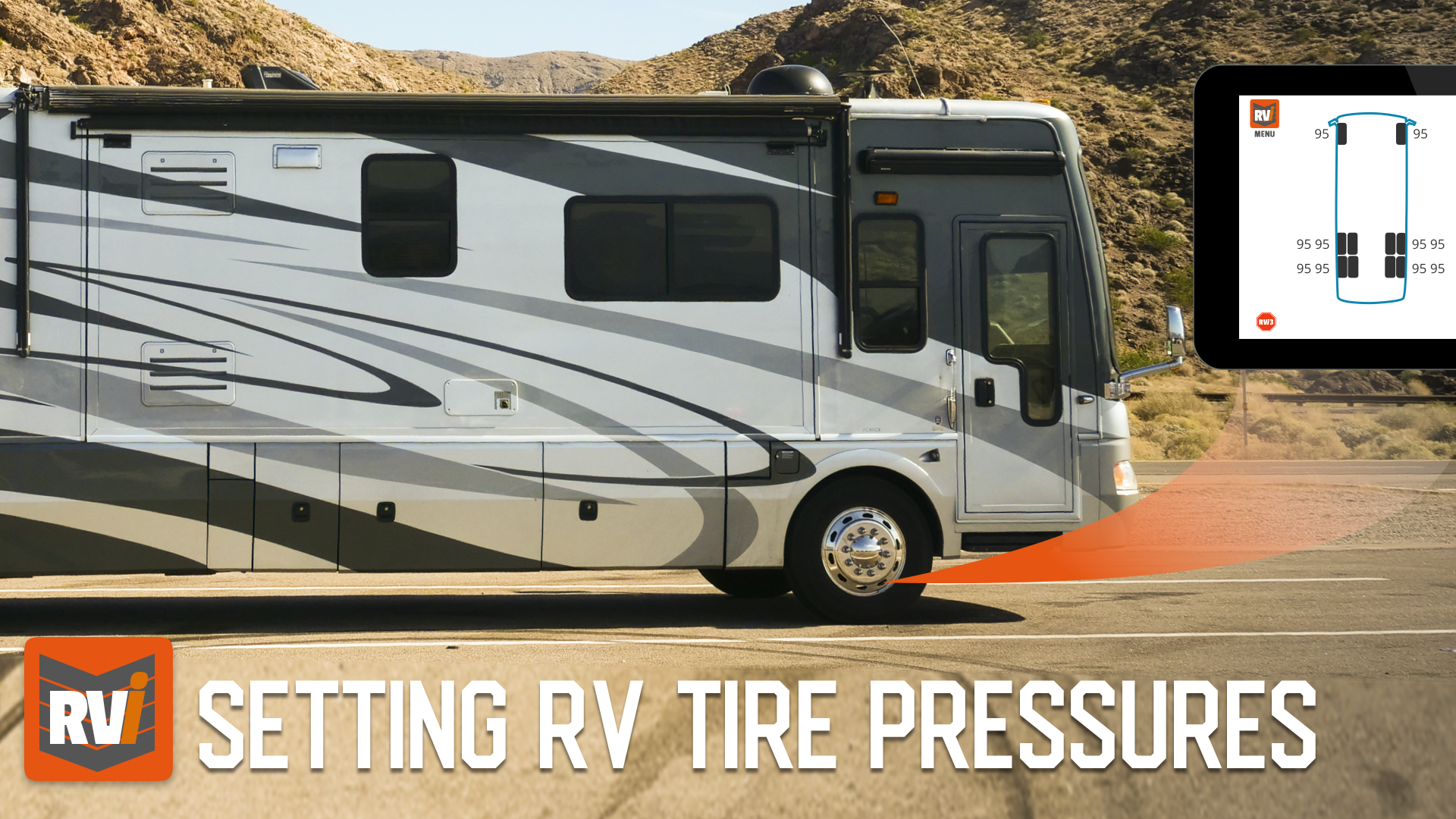
Your RV's tire pressures and overall "tire health" are crucial factors in not only fuel economy, but safety! When your tires aren't properly inflated, they aren't making optimal contact with the road's surface. This can lead to premature wear on your tires, more fuel consumption, and even blowouts.
Here's a great visual showing how tire pressures affect your RV's performance:
1. Know your weight (when loaded for a trip)
Here's a simple formula to remember: more weight = higher tire pressure. The heavier your load the more "heavy lifting" your tires must do, therefore, causing psi to increase. As you add weight, you'll want to add tire pressure accordingly to keep the whole rig running efficiently.
Keep in mind, your steer tires and rear/dually tire pressures may differ (depending on RV class and other factors). In larger motorhome especially, your steer tires will typically need to be inflated more than the others. They also may heat up and inflate at a different rate than the other tires when on the road, another reason a TPMS will come in handy.
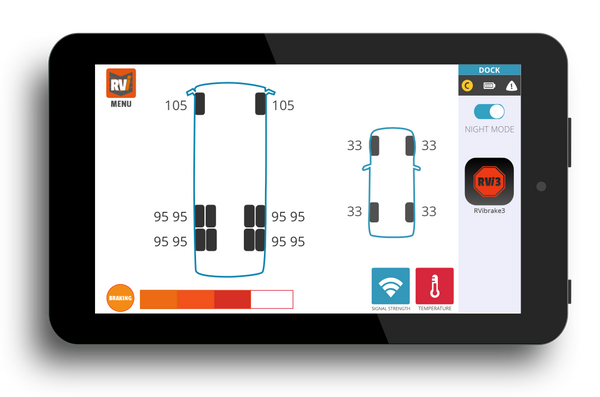
2. Think hot & cold
You'll hear us use words like "cold" and "warm," but what do they mean when talking about tire pressure? Well, to keep it simple - your tires heat up as you drive (they're also effected by weather, RV weight, and other factors), causing the pressure inside to increase.
Because of this, you should never set your tire pressures immediately after driving. We recommend always setting your initial pressures when the tires are "cold." Once you've traveled a few times (using a TPMS), you'll get a good pulse on how much your tire pressures increase while on the road and can adjust the cold pressures accordingly.
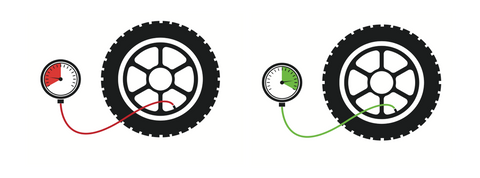
3. Use a tire pressure monitoring system
Speaking of tire pressures fluctuating, it's always better to see this change happening live (rather than finding out when it's too late). A good RV Tire Pressure Monitoring System will let you see all your tires on one display, so you'll see minor changes and be alerted of any significant changes like a tire that's overheating, rapidly losing pressure, or anything in between.
4. Don't (always) inflate tires to their max pressure
Many RVers' first instinct is to inflate their tires to the maximum cold pressure indicated on the side wall of each tire. The problem here is not that the tire can't handle the pressure, it certainly can. However, your cold pressures will likely need to vary depending on your load, the weather (current and at your destination), age of tires, and much more.
If you're traveling from Alberta, CA to Nevada you are going to experience a significant variety of climates and road conditions. This will cause your tire pressures to fluctuate on their own, however, you should consider manually altering your cold pressures before you takeoff, depending on your route for the day.
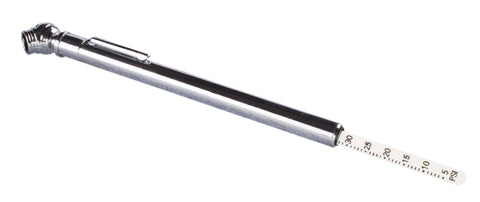
Side Note:
All RV tires are different in their own way, always be sure to read your tire manufacturers protocols and recommendations for inflation, etc. When in doubt, call the manufacturer or another experienced RVer.
Here at RVi, we're passionate about RVing and have developed a line of products to make your RV journeys less stressful. As far as tire pressure monitoring goes, we have a solution that can fit just about any RVers needs. Meet Tire Patrol!





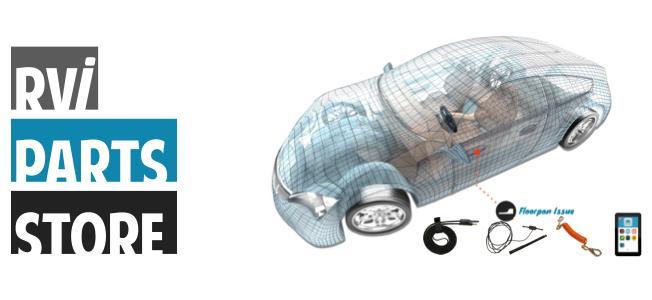
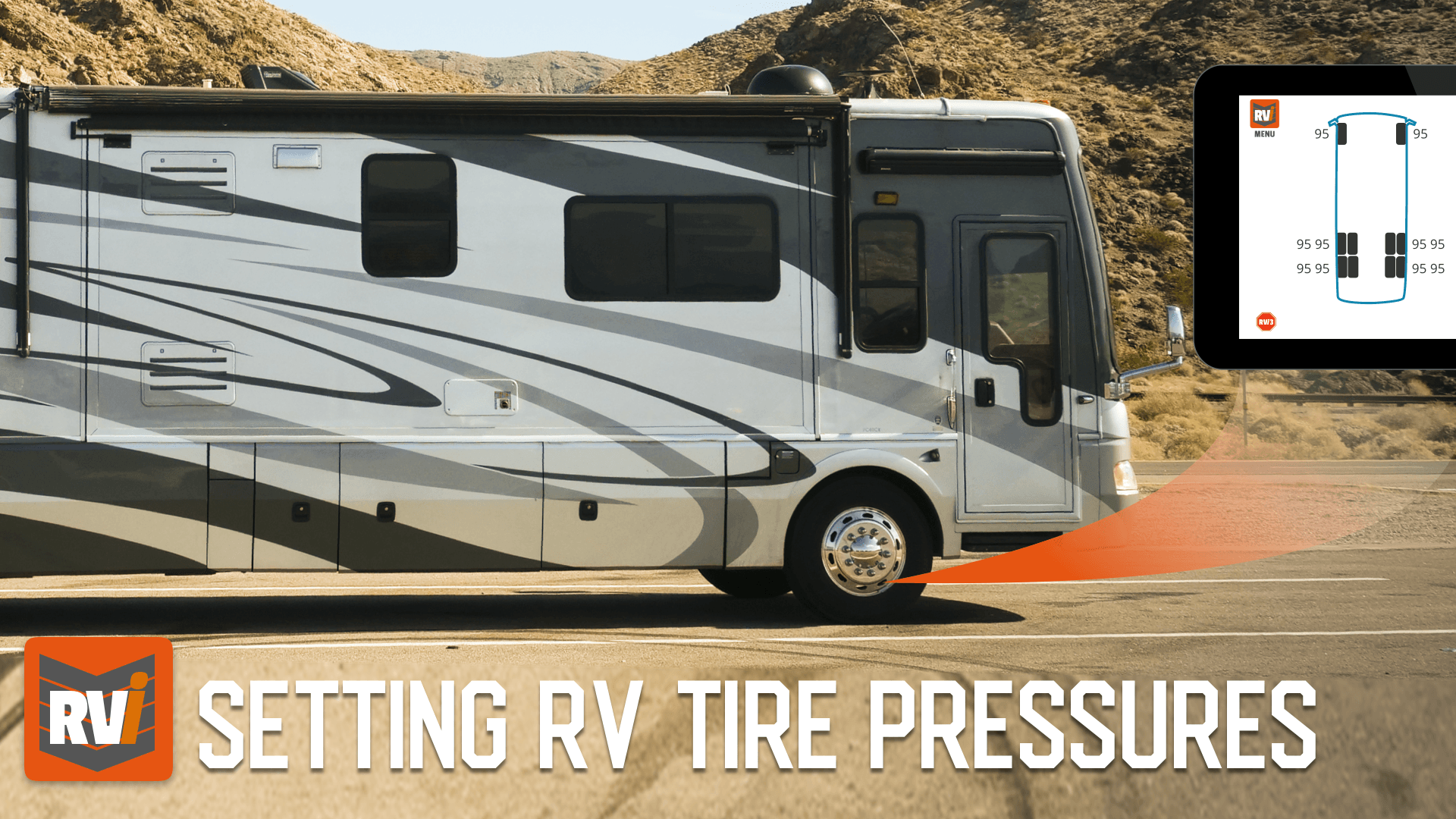



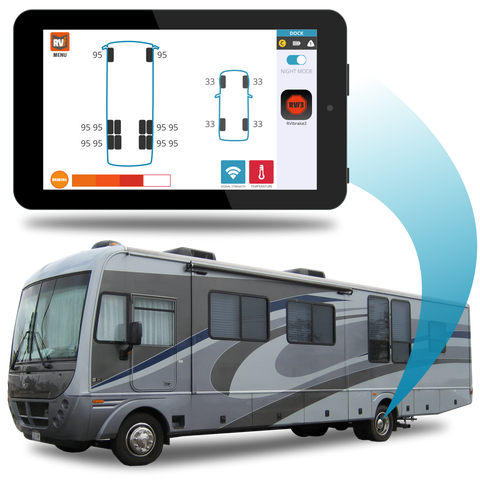

So my rv requires 80psi are you saying dont fill it this high what about 70 psi 10 pds less?ive never seen anybody not answer a simple question.
do you reccommend removing the tire sensors when the coach is going to be parked for a few months or more, thanks
Hello from Arizona,
RVI Tire Patrol was the best investment we did. Got ours in the very beginning of RVI start up. Paid for 4 sensor’s, tablet, and transmitter for our Jeep. The vendor didn’t have any, they were mail to us. They worked great and later we got 6 more sensor’s for our motorhome. RVI is always a phone call away, to help if there is problem. If your in the market for tire sensors, we highly recomend RVI Tire Patrol.
Shouldn’t I follow the vehicle manufacture pressure recommendation listed on the door frame?
Leave a comment